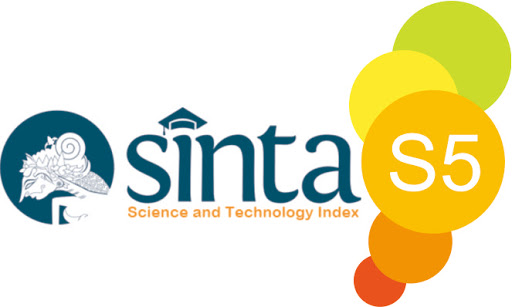Analisis Pengaruh Karakteristik Dewan Pengawas Syariah Terhadap Perilaku Pengambilan Risiko dan Penghindaran Pajak Pada Perbankan Syariah Di Indonesia
Abstract
Sharia Supervisory Board (DPS) in sharia banking plays an important role in supervising the activities of sharia banking to make sure that the bank can be free from usury (interest), gharar (unclear contract), and maisir (speculation). DPS in Islamic banks is expected to make Islamic banks more obedient to the rules. This study examines the effect of the DPS characteristics on risk-taking and tax avoidance behavior in Indonesian Islamic banking from 2010-2019. The characteristics studied included DPS financial expertise and the number of DPS meetings. Financial expertise is measured by the number of DPS who have expertise in finance. The research method used is multiple linear regression. The test results show that the number of DPS who are financial experts does not affect risk-taking behavior at Islamic banks. In contrast, the number of DPS meetings positively affects Islamic bank risk-taking. Then the number of DPS who are financial experts has a positive effect on tax avoidance at Islamic banks while the number of DPS meetings has no effect on tax avoidance at Islamic banks. The results of this study can be used as determinant to issue policies related to DPS responsibilities to maximize its role as a supervisory board in tax avoidance and risk taking.
References
Alman, M. (2012). Shari’ah Supervisory Board Composition Effects On Islamic Banks’ Risk-Taking Behavior Shari ’ ah Supervisory Board Composition Effects On Islamic Banks ’ Risk-Taking Behavior. Journal of Banking and Regulation, 82, no.1, 1–43.
Arinta, Y. N. (2019). Pengaruh Corporate Gorvenance Islam terhadap Tax Avoidance. BISNIS : Jurnal Bisnis Dan Manajemen Islam, 6(2), 69.
Armstrong, et al (2015). Corporate governance, incentives, and tax avoidance. Journal of Accounting and Economics, 60(1), 1–17.
Bank Indonesia, (2006). Surat edaran No 8/19, Pedoman Pengawasan Syariah dan Tata Cara Pelaporan Hasil Pengawasan bagi Dewan Pengawas Syariah
Barros, V., & Sarmento, J. M. (2020). Board Meeting Attendance and Corporate Tax Avoidance: Evidence from the UK. Business Perspectives and Research, 8(1), 51–66.
Bukair, A. A., & Abdul-Rahman, A. (2013). The Influence of the Shariah Supervision Board on Corporate Social Responsibility Disclosure by Islamic Banks of Gulf Co-Operation Council Countries. Asian Journal of Business and Accounting, 7(2), 506–519.
Desai, M. A., & Dharmapala, D. (2006). Corporate tax avoidance and high-powered incentives. Journal of Financial Economics, 79(1), 145–179.
Donald C. Hambrick. Phyllis A. Mason. (1984). Upper Echelons: The Organization as a reflection of Its Top Managers. The Academy of Management Review.
Frank, M. M., Lynch, L. J., & Rego, S. O. (2009). Tax reporting aggressiveness and its relation to aggressive financial reporting. Accounting Review, 84(2), 467–496.
Brigham & Houston. (2019). Fundamentals of Financial Management. Cengage Learning, Boston
Ghozali, I. (2016). Aplikasi Analisis Multivariete. Badan Penerbit Universitas Diponegoro.
Hafeez, M. M. (2013). An Analysis of Corporate Governance in Islamic and Western Perspectives. International Journal of Business, Economics and Law, 2(3), 98–103.
Huang, H., & Zhang, W. (2019). Financial expertise and corporate tax avoidance. Asia-Pacific Journal of Accounting & Economics, 00(00), 1–15.
IBM. (2013). IBM SPSS Bootstrapping 22.
Indrawaty, & Wardayati, S. M. (2016). Implementing Islamic Corporate Governance (ICG) and Islamic Social Reporting (ISR) in Islamic Financial Institution (IFI). Procedia - Social and Behavioral Sciences, 219, 338–343.
Jensen, M. C., & Meckling, W. H. (1976). Theory of the Firm: Managerial. Journal of Financial Economics, 3, 305–360.
Laeven L, Levine R (2009) Bank governance, regulation and risk taking. J Financ Econ 93:259–275
McNulty, T., Florackis, C., & Ormrod, P. (2012). Corporate Governance and Risk: A Study of Board Structure and Process.
Minton, B., Taillard, J.P.A., and Williamson, R., (2010). Do independence and financial expertise of the board matter for risk taking and performance? Charles A. Dice Centre for Research in Financial economics working paper, WP2010-14.
Mollah, S., Hassan, M. K., Al Farooque, O., & Mobarek, A. (2016). The governance, risk-taking, and performance of Islamic banks. Journal of Financial Services Research, 1–25.
Mollah, S., & Skully, M. T. (2017). Strong Board and Risk-Taking in Islamic Banks. SSRN Electronic Journal, January.
OECD. (2004). OECD principles of corporate governance.
Peraturan bank indonesia nomor : 6/2/pbi/2004 tentang bank bank umum yang melaksanakan kegiatan usaha berdasarkan prinsip syariah, (2004).
Peraturan Bank Indonesia. (2009). Peraturan Bank Indonesia tentang Pelaksanaan Good Corporate Governance bagi Bank Umum Syariah dan Unit Usaha Syariah. In Peraturan Bank Indonesia nomor 11/ 33/PBI/ 2009.
Priyono, sugeng. (2019). Implementasi Tata Kelola Perusahaan yang Baik pada Perbankan Islam di Indonesia (1st ed.). Young Progresive muslim.
Ramly, Z., & Nordin, N. (2018). Sharia Supervision Board, Board Independence, Risk Committee and Risk-taking of Islamic Banks in Malaysia. International Journal of Economics and Financial Issues, 8(4), 290–300.
Vafeas, N. (1999). Board meeting frequency and firm performance. Journal of Financial Economics, 53(1), 113–142.
W.Waemustafa, & A.Abdullah. (2015). Mode of Islamic Bank Financing: Does Effectiveness of Shariah Supervisory Board Matter?, Australian Journal of Basic and Applied Sciences.
Widhiarso, W. (2012). Berkenalan dengan Bootstrap. 1–8.









